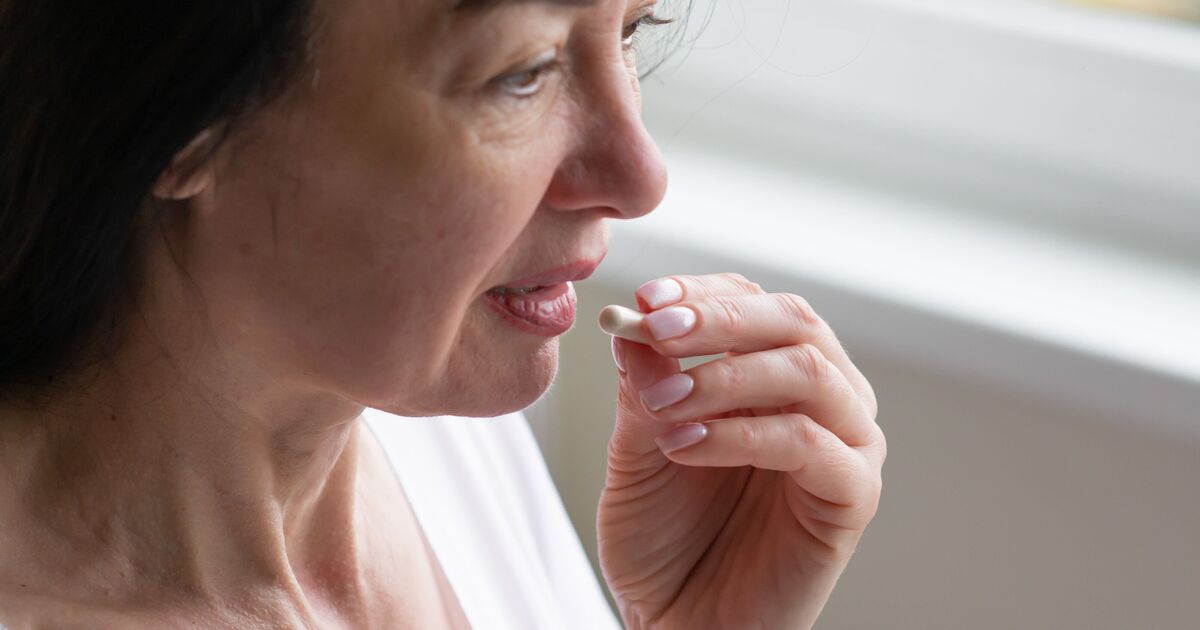A pharmacist has warned against taking hay fever tablets alongside some common medications due to potentially harmful side effects. Combining these drugs could result in breathing difficulties, constipation, and even heart problems.
It’s that time of year when hay fever becomes a problem for many Brits. Also known as allergic rhinitis, hay fever is an allergic reaction to pollen.
This week, the Met Office is warning that parts of the UK will see “very high” levels of pollen, with London and the south east of England worst affected today (June 2).
Other areas, including the south west, midlands, and the east of England are due to have “high” pollen counts for at least the next four days.
To combat the uncomfortable symptoms that come with hay fever, such as sneezing, coughing, itchy eyes, and headaches, many people rely on medication. While this is typically safe for most, an expert warned that it could be risky to take along with other drugs.
Peter Thnoia, superintendent pharmacist at PillTime, explained that if you regularly take sleeping tablets or certain antidepressants, you could be vulnerable to some unwanted side effects.
Sleeping tablets
Peter warned that people taking sleeping tablets or tranquillisers, such as diazepam or zopiclone, face a heightened risk of developing breathing difficulties when these drugs are mixed with certain allergy treatments. “Hay fever is hitting the country hard, but taking these sedating-style tablets is a no-go if you’re already taking medication to help you get to sleep,” he said.
“Not only will they both combine to sedate you, but it can impact breathing, and make you short of breath. It can also lead to dizziness and in extreme cases, people could even fall unconscious”
The concern centres around first-generation antihistamines such as diphenhydramine and chlorpheniramine. These drugs are known for causing drowsiness, which can become dangerous when combined with other sedatives.
However, safer options are available. Peter notes that non-drowsy antihistamines, such as loratadine, cetirizine, and fexofenadine, are widely available and generally safe to take alongside sleep aids or tranquillisers.
“These are becoming increasingly common on shelves and are less likely to cross the blood-brain barrier, so shouldn’t cause the same sedative effects”, he said.
Antidepressants
Peter said that certain antidepressants, when combined with drowsy hay fever tablets, can also create sedation issues, and in the most serious cases, can cause heart rhythm problems if taken over a long period of time. He said: “Tricyclic antidepressants – or TCAs, as they’re known – are like sleeping tablets in that they’re a powerful sedative, so anyone who takes them and then takes a drowsy hay fever tablet runs the risk of developing serious side effects.
“Both medications are anticholinergic too, so taking both means people could start to see other issues, like dry mouth, blurred vision and constipation.” Even SSRIs, the most commonly prescribed class of antidepressants, such as sertraline, may carry similar risks, particularly when combined with older-generation antihistamines.
“SSRIs are some of the most common antidepressants prescribed, so many people are surprised to see that they can react badly when combined with everyday tablets to tackle allergies.
“Each drug under the SSRI umbrella will have a sliding scale of side effects when it comes to drowsiness, but each one will have sedative properties, which is why it’s recommended that you go for a non-drowsy medication when suffering from hay fever.”
Alcohol
Finally, Peter warned that one of the most commonly mixed substances with antihistamines isn’t a medicine at all, but can have the same dangerous effect when combined. He added: “Alcohol significantly amplifies the sedative effect of first-generation hay fever tablets, which can result in severe impairment and lead to unconsciousness or serious accidents.
“Even non-drowsy antihistamines can occasionally react with alcohol, depending on individual sensitivity, so it’s best to avoid alcohol altogether if you’re thinking of allergy medication.”
If you are suffering from hay fever, the NHS recommends speaking to a pharmacist about the best treatments to help ease your symptoms.
